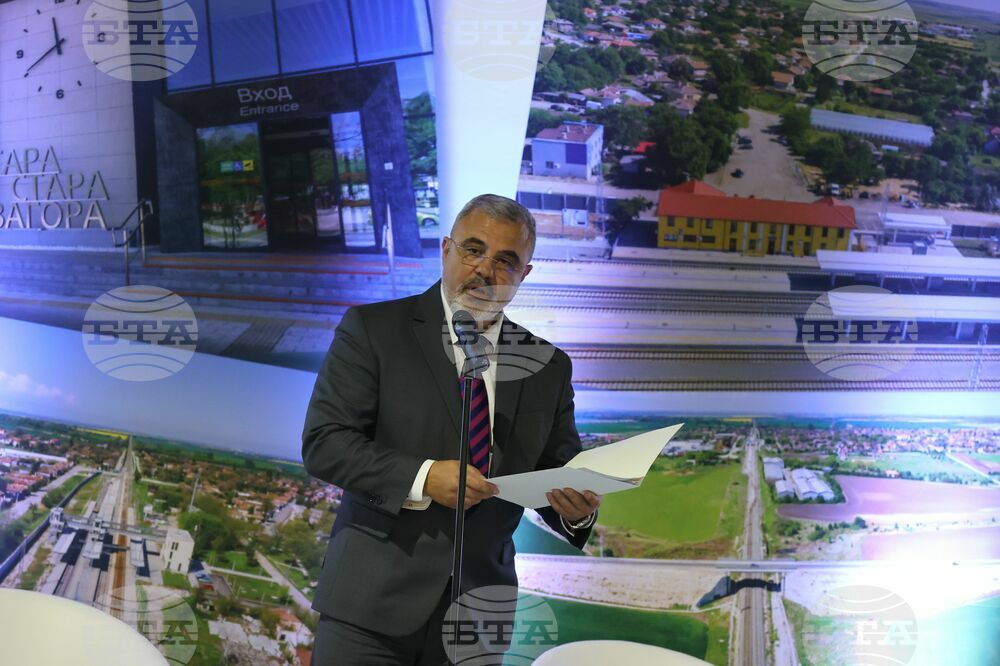site.btaStrategic Infrastructure Projects in Rail Transport Discussed at Sofia Conference


A conference dubbed “Strategic Infrastructure Projects in Rail Transport” was held in Sofia on Friday.
Yordanka Chobanova, Head of the European Commission (EC) Representation in Bulgaria, said during the conference that EUR 600 million has been allocated in the current programming period (2021–2027) to support the development of railway infrastructure within the Trans-European Transport Network (TEN-T).
Chobanova noted that these are significant investments, confirming Europe’s commitment to improving connectivity and promoting environmentally friendly transport. She identified key priorities as enhancing regional connectivity, reducing harmful emissions, and contributing to a stronger and more competitive Bulgaria and Europe. According to her, an integrated rail system would unlock greater opportunities for tourism, economic growth, and the realization of Bulgaria’s potential. The goal is for strategic projects to accelerate the development of European transport corridors through Bulgaria. This is an absolutely key priority for the EC, not only for the current programming period but also for the years ahead, Chobanova said.
She expressed regret that the density and quality of Bulgaria’s rail infrastructure still fall significantly below the EU average and that there are marked differences between the northern and southern regions of the country. To overcome these disparities, she stressed the need to accelerate investments in the rail network.
Deputy Minister of Transport and Communications Lyuben Nanov said that key railway sections across Bulgaria with a total length of over 550 km are in the process of modernization. "This scale of investment speaks for itself, it reflects our commitment to making rail the backbone of the green and smart transition," Nanov said.
According to him, more than 500 km of railway lines in Bulgaria have already been modernized with European funding, including 67 km under the Instrument for Structural Policies for Pre-Accession programme and nearly 440 km under the Operational Programme on Transport and Transport Infrastructure.
Nanov said that railway transport is not merely a segment of an administrative agenda, it lies at the heart of the country's broader efforts for sustainable, connected, and inclusive development. "Rail is at the heart of modern transport policy. It is the environmentally friendly, safe, and integrative choice for Bulgaria and Europe," he stressed. Railway projects fall under what the EU defines as “operations of strategic importance,” Nanov said. In his words, these projects receive special attention from the European Commission for embodying cohesion policy, the green transition, and regional integration.
Under the Transport Connectivity Programme for the 2021–2027 period, four operations of strategic importance have been designated in Bulgaria: modernization of the Elin Pelin–Kostenets section, modernization of the Voluyak–Dragoman section, rehabilitation of the Plovdiv–Burgas railway line, and construction of a new railway link from Gyueshevo to the border with North Macedonia, Nanov said.
Vanya Ilieva, head of the “Estat” project, unveiled a survey on people's preferences regarding modes of transport. The survey shows that 75% of commuters in Bulgaria prefer their own car to other modes of transport. There has been a sharp increase in Bulgarians’ use of cars as a mode of travel since 2019-2020. The analysis shows that the second most preferred mode of transport is bus transport with just under 20%. Unlike car transport, it has seen a steady decline as the preferred means of travel since 2019-2020. Rail transport is the least preferred as the main means of travel, while in 2019 11% of travellers identified it as the main means, in 2024 this share reaches 4%, Ilieva pointed out.
People in the country travel frequently and actively, with three out of ten people travelling at least once a week to somewhere other than where they live, according to the survey. Asked in free text to share what the most important transport issues in the country are for the survey participants, they put the quality of roads and road infrastructure first, followed by the quality of rail services.
/VE/
news.modal.header
news.modal.text